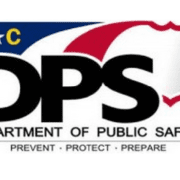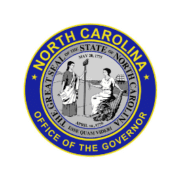CDC Moratorium Temporarily Halts Residential Evictions Until Oct 3
CDC issues new temporary moratorium to halt residential evictions through Oct. 3
HOPE Program still accepting applications for emergency rental assistance
— press release courtesy of the N.C. Department of Public Safety —
RALEIGH—The Centers for Disease Control and Prevention (CDC) has issued a new residential eviction moratorium that will offer protection from eviction for most renters in North Carolina. The moratorium, which will remain in effect through Oct. 3, 2021, applies in U.S. counties experiencing substantial and high levels of community transmission of SARS-CoV-2, the virus that triggers COVID-19. The CDC has found that evictions of tenants for failure to pay rent could be detrimental to public health measures designed to slow the spread of the virus. Most North Carolina renters would be eligible for protection from eviction under the order, with some important exceptions.
As of today, only four North Carolina counties do not meet the new eviction moratorium criteria, including Bertie, Hertford, Hyde and Warren counties. The status of these and other counties could change in the future depending on COVID-19 transmission levels.
Renters throughout the rest of the state who currently meet the eligibility criteria may present a declaration form to their landlord and receive protection from eviction. Renters can also find additional resources online through NC 211 and the HUD Rental Housing Counseling and Eviction Prevention Program, which includes contact information for local housing counselors.
Emergency Rental and Utility Assistance
The N.C. Housing Opportunities and Prevention of Evictions Program (HOPE) continues to provide rent and utility assistance to low-income renters in 88 counties that are experiencing financial hardship due to the economic impacts of COVID-19. Since opening last fall, HOPE has awarded more than $328 million to North Carolina households, with $245 million already paid to landlords and utility companies statewide.
Information about the HOPE Program, including eligibility requirements, program benefits and an online application, is available at www.HOPE.NC.gov. Applicants who cannot access the website should call 888-9ASK-HOPE (888-927-5467) for help with the application process. The HOPE Call Center is open Monday through Friday, 8 a.m. to 5 p.m. Both English- and Spanish-speaking representatives are available to assist callers.
As of last week, the HOPE Program is also accepting landlord referrals of tenants who are struggling to pay rent due to the pandemic. Landlords can submit tenant names and contact information through the HOPE Program website or by contacting the HOPE Call Center at 888-9ASK-HOPE (888-927-5467). A program specialist will then follow up with the tenant to help start the application process.
In addition to the HOPE Program, 12 counties and five Native American tribes received direct federal funding to manage local emergency rental assistance programs. More information about the areas served by HOPE and local programs is available at the HOPE Interactive Map.
The HOPE Program is managed by the N.C. Office of Recovery and Resiliency, a division of the Department of Public Safety. To learn more about the HOPE Program, visit www.HOPE.NC.gov
###


